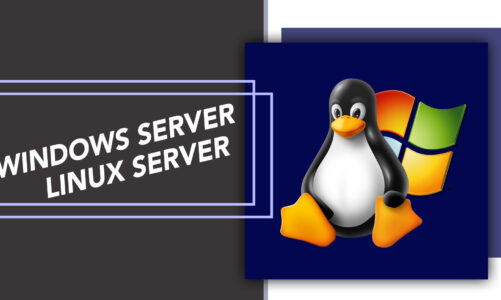When it comes to audio software, the variety is both exciting and overwhelming. Whether you are a music producer, podcaster, or just an audiophile, there’s a piece of software that suits your needs.
Audio software essentially allows us to manipulate and enhance sound. From recording podcasts to producing music or even just playing songs, the quality of your audio software will make a significant difference. That being said, as a Linux user, you have specific needs that differ from users of other operating systems. You know Linux is powerful and versatile, but finding compatible software can be a challenge.
Linux users require software that can match the operating system’s power, flexibility, and stability. And thankfully, there are options available that tick all these boxes. Here are our top picks that you might find to be the best fit for you.
Best audio software for Linux
1: Audacity
Audacity is a free, open-source, cross-platform audio software that is widely recognized in the industry for its ease of use, versatility, and robust features. Audacity, since its inception, has earned a reputation as a reliable audio editing and recording software across various operating systems, including Linux. Its impressive range of capabilities makes it an excellent choice for beginners trying their hand at audio manipulation, as well as professionals who require a reliable tool for more complex projects.
Quick Features
- User-Friendly Interface: Audacity’s user-friendly interface and design simplifies navigation for users of various skill levels. It provides access to all necessary tools without the need to sift through complex menus.
- Robust Recording Capabilities: Audacity supports multi-track recording, enabling users to produce studio-grade recordings with stereo or mono tracks simultaneously.
- Advanced Editing and Mixing: Audacity offers a variety of editing options, allowing you to manipulate audio with precision. Its mixing capabilities also let you create balanced and well-structured audio projects.
- Range of Audio Effects and Plugin Support: The software includes a diverse range of audio effects such as pitch alteration, echo, reverb, and more. It also supports various plugins (VST, LADSPA, LV2, Nyquist), providing additional functionalities.
2: Ardour
Ardour is an open-source Digital Audio Workstation (DAW) that provides a flexible platform suitable for sophisticated audio editing, mixing, and mastering tasks. Known for its professional-grade features, Ardour stands out as a comprehensive solution for audio engineers, musicians, soundtrack editors, and composers who are looking for a robust audio production tool on Linux.
Quick Features
- Multi-track Recording: Ardour provides a sophisticated environment for multi-track recording, making it suitable for complex music production tasks.
- High-level Editing: Users can make precise edits with tools like ripple, roll, slip, and slide, available directly in Ardour.
- Mixing and Mastering: With features like unlimited buses, VCAs, and full automation support, Ardour offers robust mixing and mastering capabilities.
- Support for Various Plugins: Ardour supports a broad range of plugins, including LV2, VST, and AU formats, making it a highly expandable audio tool.
3: LMMS
LMMS (Linux MultiMedia Studio) is a free and open-source digital audio workstation that offers a range of features suitable for music production. Its easy-to-use interface and comprehensive suite of tools make it a favorite among Linux users who want to create and produce music.
Quick Features
- Song-Editor for composing music: LMMS includes a song editor for composing melodies, beats and arranging samples.
- Support for MIDI: LMMS offers full MIDI support, making it an ideal tool for musicians working with this protocol.
- Built-in synthesizers and effects: It comes with various built-in instruments, samples, and effects, reducing the need for external plugins.
- Compatibility with a range of file formats: LMMS supports a variety of file formats, such as OGG, FLAC, and MP3.
4: Blender
Blender is a comprehensive free and open-source 3D creation suite that also includes versatile audio editing tools. Though better known for its 3D design and animation capabilities, Blender holds its ground as a reliable solution for audio editing tasks on Linux. It’s an exceptional choice for those seeking an all-in-one multimedia creation tool.
Quick Features
- Video Sequencer Editor: Blender’s Video Sequencer Editor can also function as an audio editor, allowing users to undertake tasks such as cutting, trimming, and arranging audio clips in a non-linear fashion.
- Audio Mixing and Scrubbing: Blender allows for intuitive audio mixing, letting users handle different audio tracks and balance their project’s sound. Audio scrubbing is also supported, offering an easy way to synchronize audio with visuals.
- Support for Various Audio Formats: Blender supports a variety of audio formats, including MP3, WAV, and OGG, offering flexibility to its users.
5: Hydrogen
Hydrogen is a free and open-source software synthesizer explicitly built to serve as an advanced drum machine. With its pattern-based sequencer and high-quality time-stretching, Hydrogen has found a solid place among Linux users who are keen on music creation, particularly rhythm programming.
Quick Features
- Pattern-based Sequencer: Hydrogen shines with its pattern-based sequencer, which allows the creation of rhythmic patterns that can be arranged to form a complete song.
- High-Quality Time Stretching: Hydrogen offers high-quality time-stretching and pitch-shifting capabilities, which are vital for achieving professional sound.
- Support for Multiple Patterns: With Hydrogen, you can work with multiple patterns at the same time. This can greatly enhance the creativity and complexity of your beats.
- User-Friendly Interface: Despite its sophisticated features, Hydrogen maintains an easy-to-use interface, making it accessible to both beginners and more experienced users.
6: Adobe Audition
Adobe Audition, while not originally designed for Linux, is a professional-grade digital audio workstation widely recognized for its advanced audio editing tools and smooth interface. With Wine or similar software, Linux users can also take advantage of Adobe Audition’s rich capabilities. This platform is well-suited for recording, mixing, mastering, and restoring audio.
Quick Features
- Multitrack Recording and Editing: Adobe Audition offers a robust multi-track environment for complex audio editing tasks and top-notch recording quality.
- Advanced Audio Restoration Tools: Adobe Audition has superior audio restoration features, allowing users to easily clean up and repair audio.
- Integrated Loudness Metering: Audition offers integrated loudness monitoring, ensuring your mixes meet broadcast volume standards.
- Support for Various Plugins: Adobe Audition supports a broad range of plugins, enhancing its flexibility and adaptability for unique user needs.
Conclusion
Linux offers diverse audio software like Audacity, Blender, Ardour, LMMS, Hydrogen, and Adobe Audition. Each brings unique strengths, from robust recording and editing capabilities to unique audio-visual integrations and advanced rhythm programming. The right choice depends on your specific audio needs and proficiency level. With these high-quality options, Linux users can confidently embark on any audio project.



